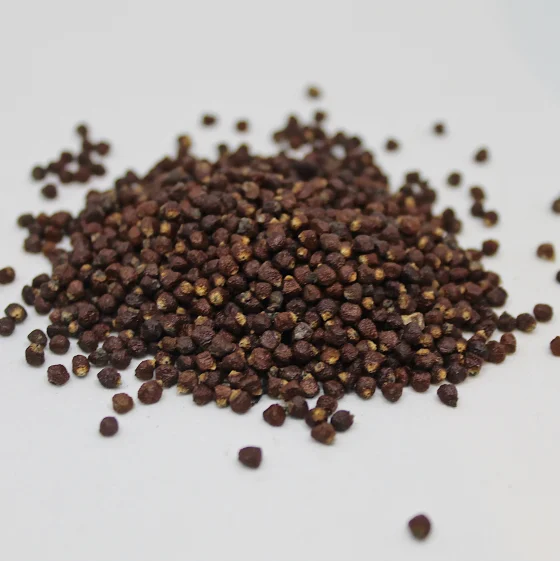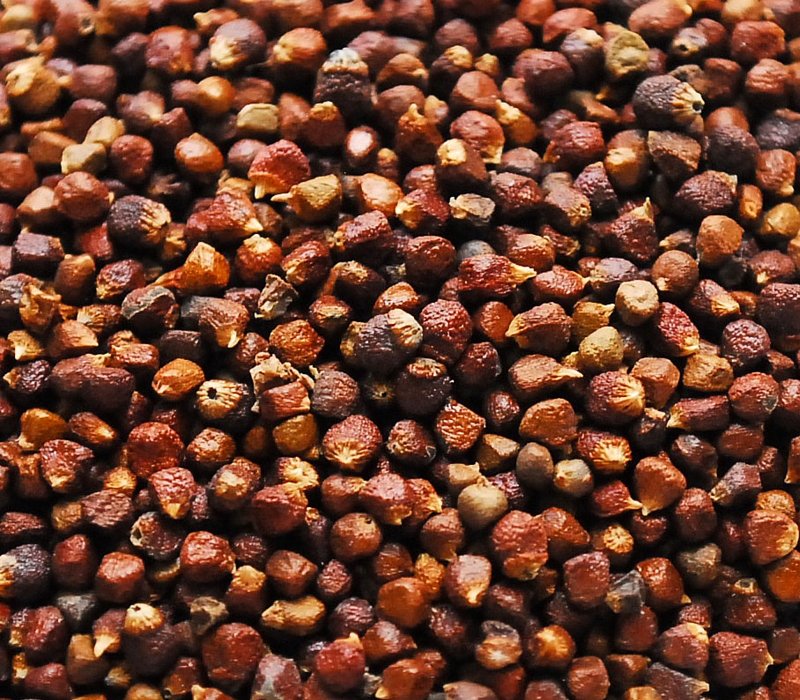Ose Oji: Alligator Pepper vs. Peanut Butter (5 Facts Everyone Should Know About Each of Them)
Have you ever mistaken Ose oji for just peanut butter (the popular version used to eat garden egg)? You're not alone! Growing up, I also associated the term Ose oji with peanut butter. However, I later found out that there's more to the Igbo term than meets the eye. We discovered overtime that it was the same term used for Alligator pepper in Igbo, that was also used to refer to peanut butter.
In this comprehensive blog post, we'll get into the nuances of Ose Oji, we’ll take this opportunity to explore the differences between peanut butter and alligator pepper, while highlighting their unique qualities and health benefits.
Alligator Pepper (and Its Intricacies)
Alligator pepper, also known as Ataare in Yoruba or Ose Oji in Igbo, even though it has regained popularity in modern times as a spiritual tool or instrument, it is also a spice with a rich cultural significance in West African cuisine and traditional medicine. Here are five facts everyone should know about alligator peppers:
Distinct Flavor Profile: Alligator pepper has a complex flavor profile characterized by its pungent and peppery taste.
Medicinal Properties: In traditional West African medicine, alligator pepper is very valuable for its potent medicinal properties, including the role it plays in aiding digestion, improving respiratory health, and in certain cases boosting libido.
Cultural Significance: Alligator pepper holds deep cultural significance in various West African rituals and ceremonies, it symbolizes purity, good fortune, and protection against evil spirits or negative energes amongst other things.
Culinary Uses: It is actually commonly used to flavor soups, stews, and sauces, adding depth and spiciness to dishes. It is also chewed as a palate cleanser or incorporated into traditional culinary rituals.
Ritualistic Practices: Alligator pepper plays an important role in spiritual and divinatory practices across many West African cultures, where it is believed to enhance spiritual communication and offer protection against malevolent forces.
Peanut Butter (and Its Intricacies)
Igbo Spiced Peanut Butter, also known as Ose Oji or Okwa Ose, is a beloved condiment and creamy spread made from ground roasted peanuts. It is used in various culinary applications, from sandwiches and smoothies to sauces and desserts. Here five facts everyone should know about this nutritious spread:
Nutrient Powerhouse: Peanut butter is packed with essential nutrients, including protein, healthy fats, fiber, vitamins, and minerals. It serves as a convenient and delicious way to boost your daily intake of nutrients.
Heart-Healthy Benefits: Studies have shown that consuming peanut butter in moderation may lower the risk of heart disease. Its high monounsaturated fat content, combined with antioxidants and other heart-healthy nutrients, supports cardiovascular health and can help maintain healthy cholesterol levels.
Source of Plant Protein: Peanut butter is a valuable source of plant-based protein, making it an excellent choice for vegetarians and vegans. With approximately 7-8 grams of protein per serving, it provides a satiating and nutrient-dense option for meeting protein needs.
Versatile Culinary Ingredient: Beyond being a spread for garden egg or bread or biscuits, peanut butter has a wide range of culinary applications. From savory sauces and dressings to sweet desserts and smoothies, its rich and creamy texture adds depth of flavor and richness to various dishes.
Long Shelf Life: Thanks to its natural preservatives and stable composition, peanut butter has a relatively long shelf life, making it a pantry staple with excellent storage capabilities. When stored properly in a cool, dry place, unopened peanut butter can last for months or even years without spoiling.
Comparing Uses of Alligator Pepper and Peanut Butter:
While alligator pepper and peanut butter have distinct flavors and uses, they also share some commonalities. Both can be used as flavor enhancers in cooking, adding depth and complexity to dishes. However, alligator pepper is primarily used as a spice in savory dishes and a tool in traditional rituals, while peanut butter is commonly enjoyed as a spread, dip, or ingredient in sweet and savory recipes.
In conclusion, Ose Oji is an Igbo term that can apply to both peanut butter and alligator pepper. For those who aren't familiar with Igbo culture, this post may seem irrelevant. However, if you've had exposure to Igbo language and customs long enough, you may have encountered a common confusion regarding the interchangeable use of "Ose Oji." Understanding this distinction can help clarify the matter incase of future encounters. So, whether you're savoring the heat of alligator pepper and using it for traditional rituals or indulging in the wonderfulness of spicy peanut butter, Ose Oji offers a world of flavors and possibilities to explore. Enjoy!
Leave us a comment below if you’ve had your moments when you thought Ose Oji meant one thing and not the other, or if you’ve always been certain it meant both things. Share this post with others, you could be saving someone from an unncessary argument!






